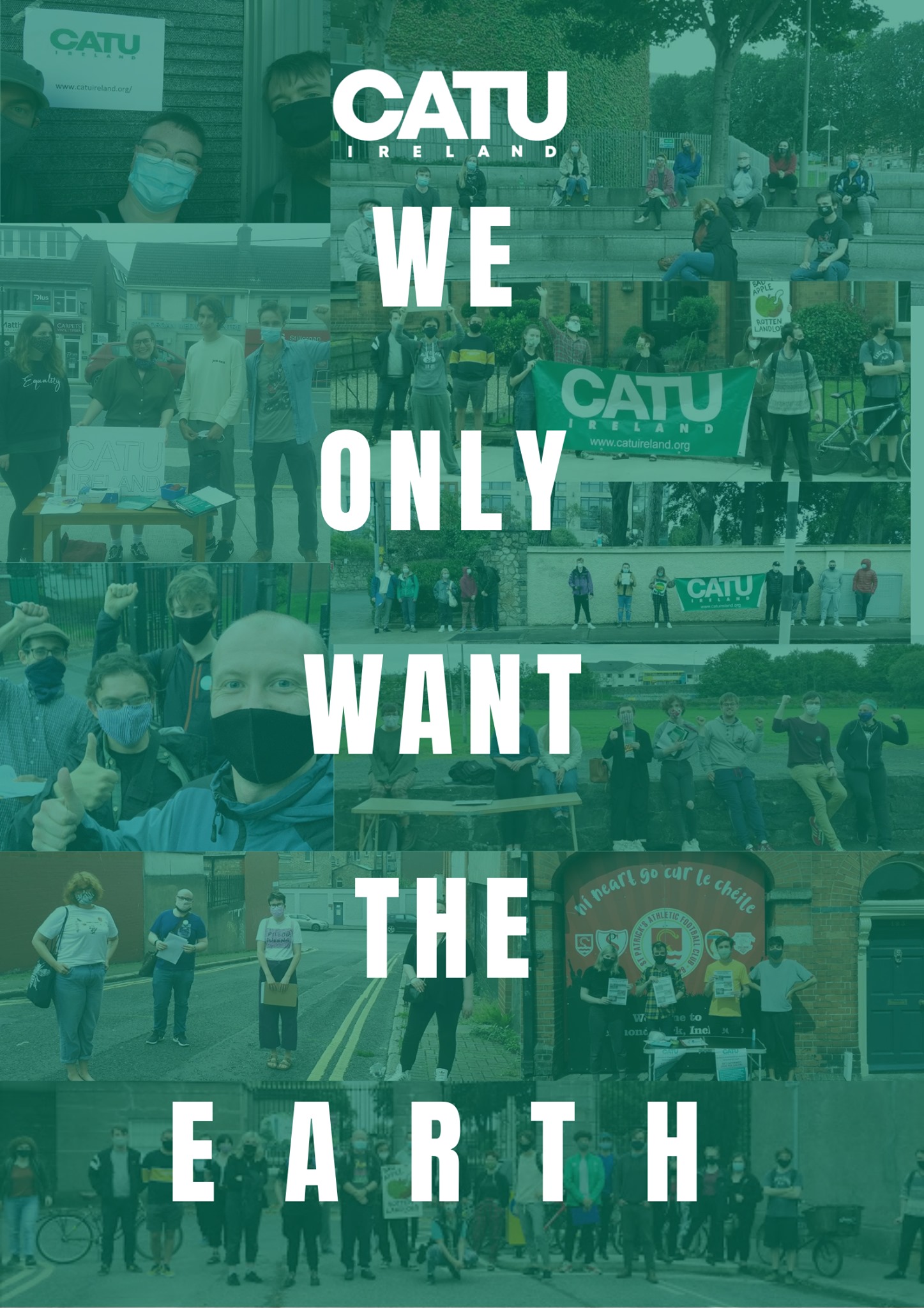Housing, capitalism, and why it’s time to unionise
by Aaron Downey (Training and Education Officer)
Housing is a commodity under capitalism; the current economic system where most industry (and property) is owned by private individuals, and goods are produced for the market. By commodity I mean something which is produced for use, as well as, most essentially, for the market and exchange; this is why we can have people homeless while homes lie empty, as use is decided based on ability to pay for it.
I argue that this makes housing, in part, a unique commodity. It is a continuously consumed item which creates a material difference between tenant and landlord, alongside materially opposed interests: one wants to lower their cost of living, the other wants to make the most money possible from their tenants. Like the workplace it also carries disciplinary threats if this flow of profit is disrupted; just like you can be sacked from your job, you can be evicted from your home.
Rent is a tax paid by those unfortunate enough to not own property, to those who have had the wealth and ability to acquire it in the first place. Even after builders, carpenters, roofers, and others have been paid for their work; even when landlords who take out mortgages have reimbursed the bank, tenants continuously pay above and beyond the upkeep costs to get access to a roof over their head.
Therefore the particular role of housing in capitalism is one of exploitation. It may be a commodity but I believe organising around housing can be taken far from being a kind of radical consumer watchdog. I argue that it is a commodity of essential importance to working people and landlord capitalists, and to challenge its current provision challenges some of the most basic assumptions regarding property rights and profit.
Secondly, if we don’t organise tenants – someone else will. The visceral nature of eviction and obvious misery of homelessness has made it a massive political hot topic in Irish society. On the one hand, migrants are disproportionately exploited by our current housing system, as can be seen in the violent eviction of Berkeley Road earlier this year. While on the other, the tight competition for places on council waiting lists, or for the opportunity to pay exorbitant rent to landlords, has also made it fertile ground for racists and the far-right to capitalise on and promote nativist anti-immigrant ideas (unless they can be out-organised).
Using the union model as an avenue to pin the blame on those actually profiting from or driving the crisis; unscrupulous landlords, businesses, and the state; is an effort to redirect reactionary fears to the direct causes of homelessness.
I believe moves to organise everyday life outside the workplace, serves as an avenue to politicise people around some of their most pressing economic and social concerns, and large mass-membership organisations including people from a variety of backgrounds, based on collective solidarity, can go a long way towards alleviating divisions in a more inclusive way, beyond individualised casework or advocacy.
Financialisation, the increasing operation of the economy along the lines of financial trends, and the increasing incorporation of housing into financial assets, has also played a part in making a collective union model a priority. As mortgages have been absorbed into financial instruments, and massive stocks of housing are being moved to landlord REITs (Real Estate Investment Trusts) or vulture funds, it becomes clear that real estate capital is infiltrating more and more facets of peoples’ daily lives and causing more people to rent from the same big landlord as a way to extract greater profits. Oftentimes pension funds are invested directly in property, tying workers’ material interests to the exploitation of each other through high rents. We need collective fights to counter this.
The case study of the regeneration of Belfast indicates that in many cases expensive housing and other real estate has sought to fill the void of manufacturing in decline. It maximises its profits via control of our urban planning, leaving us with cities that are evicting their long term residents, destroying their character, and heightening their inequalities.

The increasing centralisation of tenants also offers more opportunities for tenant resistance, however. Similar to the creation of vast factories in the Industrial Revolution which laid the basis for collective resistance by uniting a large group of workers in contact with each other under the same antagonist, the centralisation of housing offers opportunities for a tenants’ movement that can use the fact landlords are more vulnerable to collective action which disrupts profits. The successes of NATO (see previous post) hinged on the fact its members were renting from the same landlord; the state; and as a result were best able to use their economic position as tenants.
The union structure of CATU I think is useful in terms of both countering this trend of exploitation as an action focused union and for the basic principles this sets out: solidarity, mass membership, and direct antagonism with oppressors. It keeps us focussed on the basics of organising: recruitment from as wide a pool as possible, with the aim of moving issues to collective action, while limiting the amount of advocacy or case-work we take on. The reason for this is capacity – we must always consider what actions increase our ability to act in the future as opposed to leaving us burnt out and bogged down in a legal system that isn’t made for us. If we want to build a mass working-class movement, how we win is almost as important as winning in the first place.
Given what I’ve outlined above it’s clear we need resources of some kind – the deck is stacked against us and we need time and materials in a world where everything costs money. That leaves us with several options: either volunteers chipping in their own time and money, external funding, or a membership-based organisation. We’ve tended for the latter. Unlike the first one where the loudest voices, activists that can commit the most time, or biggest wallets can have the greatest influence; or external funding which could compromise our independence and have our goals set from the top-down by outside individuals or organisations; a dues-paying membership based organisation levels the playing field significantly, makes things more democratic from the ground up, and allows for a more equitable distribution of resources.
The simple commitment of paying dues offers stepping stones for member engagement that is missing from more loose organisations that are activist-oriented. Rather than it being everything or nothing from people, it allows for a more organic level of involvement and membership development. It also means there is a greater level of accountability from the organisation as a whole towards its grassroots members.
If CATU was founded to solidify housing and community fights where some had struggled before, it is necessary that we reach new people, give them an avenue to get involved and politically engaged and retain this involvement. It means breaking out of activist circles and an organisation with a clear mechanism for joining was the natural step.
With an ongoing housing crisis amidst a pandemic, a world already destabilised by conflict, and a rapidly approaching climate crisis threatening lives in communities across the world; time is of the essence.
This is part of a new initiative for encouraging member-led writing for the CATU blog. Possible topics for 1000-2000 word articles could include: your experiences of housing and community activism in Ireland or abroad, historical pieces on the background to our current moment (including the contribution of social movements to change), works of analysis, strategy, tactics, solutions, or more! If interested, email catuireland@gmail.com with your suggested piece.


